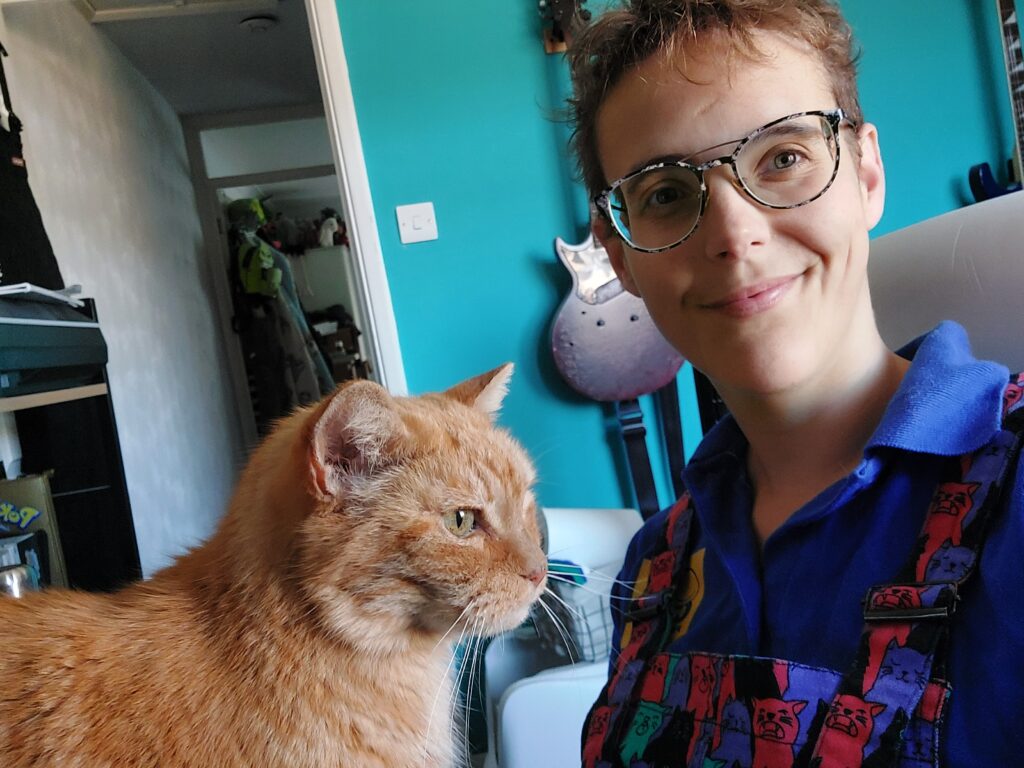Campaign 4 of VN Futures Diversity, Inclusivity, and Widening Participation Working Group is centered around menopause. In this blog, Samantha Lympany-Tier, Education and Development Officer at Optivet Referrals discusses how her treatment for cancer caused premature ovarian insufficiency and early menopause. Samantha talks about how early menopause has affected her and how crucial her personal and workplace support network is to help manage the symptoms of menopause. Samantha is currently finishing her Clinical Animal Behaviour MSc at Edinburgh University, with her thesis exploring how veterinary professionals understand and perceive animal emotional welfare in practice, the results of which she hopes to publish in the future.
*TW: Sensitive content – Cancer treatment and infertility*

10%. They say only 10% information goes through to clients in the veterinary practice, I wonder if it’s the same for people? We are all very familiar with owners exclaiming to know nothing about certain risks or side effects to medications, sometimes to the animal’s detriment. We often wonder how owners can miss such vital parts of information. Except, when my consultant was talking me through the risks of my chemotherapy, I missed a crucial one.
You are told when you’re receiving cancer treatment that there is a medium risk to your fertility, as a woman they talk a lot about storing eggs and the likelihood of children in the future. However, the risk of early menopause is not really highlighted. Of course, in retrospect, it makes perfect sense. When I was told of my infertility, I was upset but not entirely surprised. What did surprise me was being told because of this, I was now classed as someone with premature ovarian failure. In short, I was menopausal at the age of 26. This came with a whole host of symptoms, and fast forward three years from hearing the news and I am still struggling to balance my HRT correctly for my age. The first year was primarily playing hot potato with my GP, my oncology consultant and my fertility consultant, who all seemed to have different thoughts on what would be best to treat my POI. Unsurprisingly, this took its toll both mentally and physically. Between burning feet, night sweats, insomnia, intense brain fog and everything a bit more intimate… I felt completely lost.
Luckily, I have an amazing husband and network of friends and colleagues who have supported me through this journey. Having to admit to work what was happening was frightening, but they offered me flexible working to attend consultations, take phone calls, and take sick days when the symptoms got too much. They purchased me cooler scrubs, ice packs and put in place an air con policy which meant I didn’t have to keep battling my European colleagues for a cooler working environment! Don’t get me wrong, I still have bad days. I am starting to accept that this journey doesn’t have an end, but hopefully by speaking up and changing our culture around premature menopause, we can make the road smoother for those coming after. The biggest bit of advice I can give? Advocate for yourself. You know your body better than your GP, your consultant, your manager, your friends… It is a shame we must fight for our symptoms to be recognised and at times, taken seriously, but do not squeeze yourself into their tick boxes when it comes to your treatment. The storm will pass, but run out and meet it head on (maybe with an umbrella…).

For more information and support on premature ovarian insufficiency go to: https://www.daisynetwork.org/
For more information and support about living with cancer go to: https://www.macmillan.org.uk/
For more information and support about the menopause go to: https://www.menopauseandme.co.uk/
